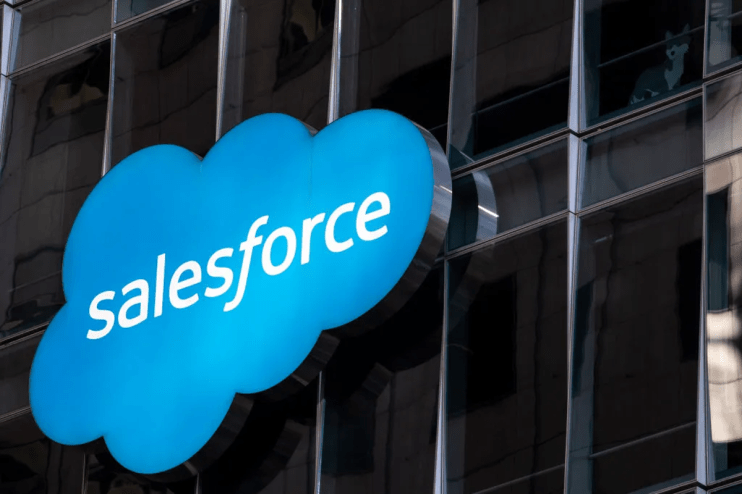Tech stock boom starts to show cracks

In what may signal the end of the tech stock boom, cracks are beginning to appear in the global software industry that, until recently, has enjoyed a strong run.
Software stocks worldwide are slipping, with US company Salesforce down 19 per cent over the past month and British firm Sage down nearly 13 per cent, as of 31 May.
Since the start of 2023, when Salesforce’s share price plunged to a low of 128p, it has steadily climbed back up to a high of nearly 317p in March this year.
However, this upward trend reversed sharply on Thursday as the company reported worse-than-expected revenue and operating margins, while guidance also came to light.
“Salesforce felt the wrath of the market in after-hours trading after a disappointing quarter,” said Hargreaves Lansdown equity analyst Matt Britzman.
“Customers are keeping their purse strings tight when it comes to adopting new software services and that’s keeping a lid on top-line growth. There were some glimmers of progress being made from the AI services that Salesforce is slowly rolling out.
“But it’s becoming quite apparent that the boom seen by those enabling the AI transition (think Nvidia and the cloud giants) isn’t yet translating to those who’ll be offering services off the back of it,” he explained.
On Thursday, Salesforce experienced its largest single day drop since 2004 after it projected the slowest quarterly sales growth in its history, re-sparking concerns that the AI boom is leaving the company behind and that it could take some time for AI to meaningfully drive top-line growth for the company.
In its latest report, the tech stock with a market cap of $211.7bn (£166bn) also warned of risks associated with its ability to secure sufficient data centre capacity, vital for developing AI systems.
Dan Coatsworth, investment analyst at AJ Bell, said “Salesforce is proof that tech companies aren’t a guaranteed one-way ticket to the moon for shareholders.
“Previously a target for activist investors, Salesforce might have to sharpen its defenses once again as the share price slump could attract another wave of institutions putting pressure on the CRM software provider, eager to offer their suggestions for how it can improve profitability.”
Like Salesforce, UK software business Sage is on a comedown after reaching a high of 1,282p in March, thanks to its successful business cloud product. It stooped to 1,015p this week.
In May, Sage slightly missed analyst revenue forecasts for the first half of the year, with US growth slowing.
Its annual recurring revenue (ARR) growth rate, an important forward-looking indicator, has moderated slightly and new customer acquisition also came in shy of expectations. Management pointed to slower decision-making in the US as a factor.
Earlier this month, Sage chief executive Stephen Hare said that while the growth outlook for the US market—the company’s biggest revenue maker—is slightly more modest, they are seeing stronger growth in Europe, leading to consistent growth expectations for the second half.
But analysts have raised concerns about potential macroeconomic and competitive issues in the US market, which could affect future performance.
The results caused a nine per cent fall in the London-listed tech stock, and following the results, Canaccord Genuity reiterated a ‘sell’ rating. It said the share price drop had “taken some of the heat out of the valuation” but there is still a growing risk of a continued ARR growth slowdown in the US.